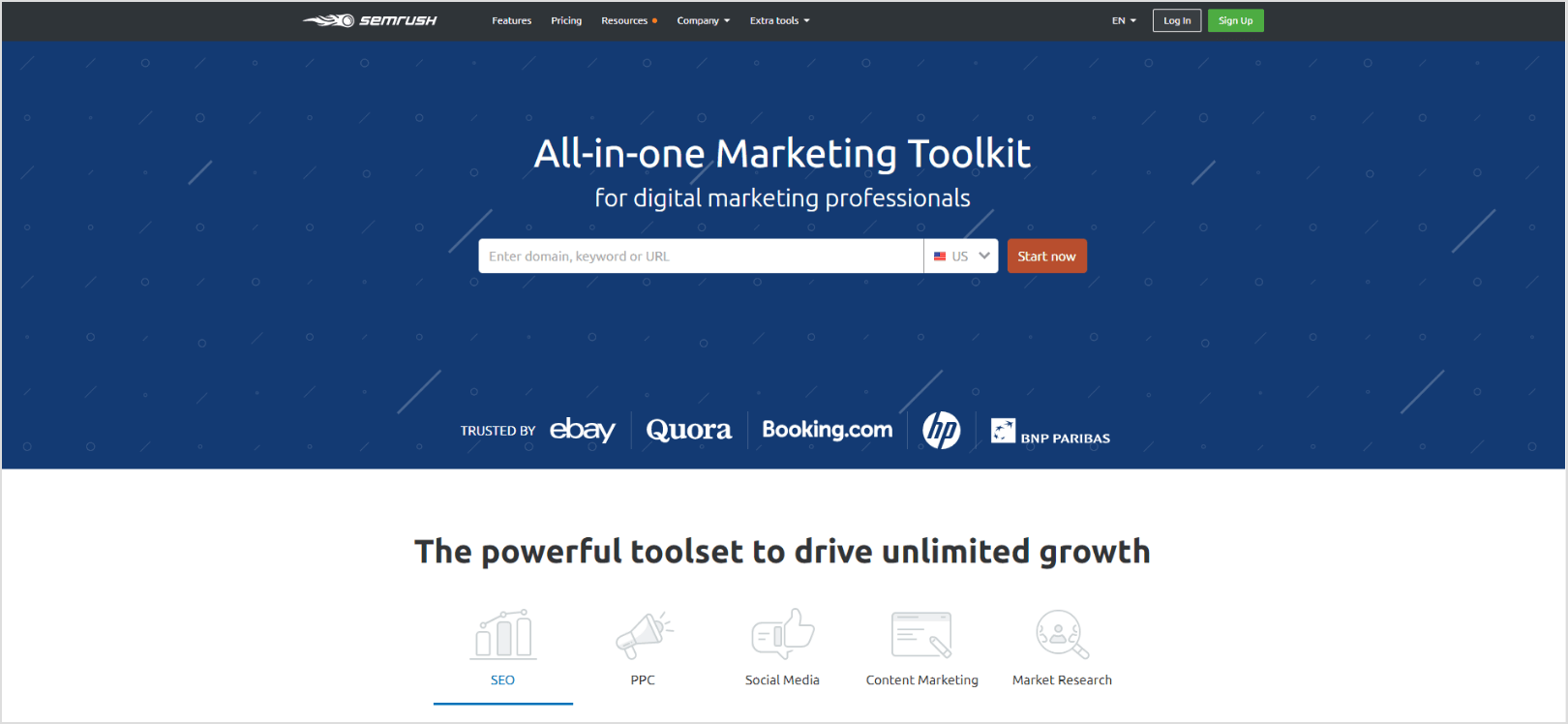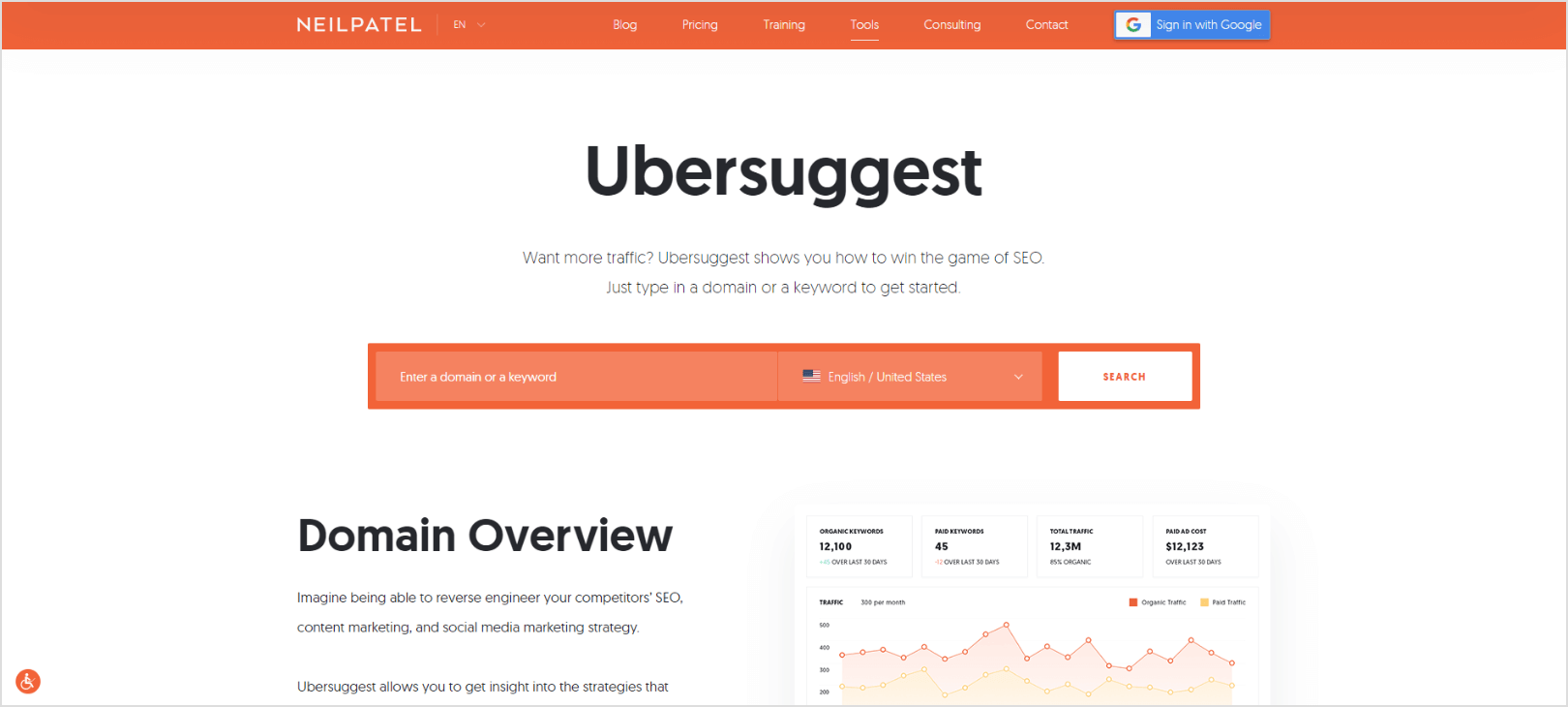The one inbound marketing strategy that has remained consistent throughout search engine algorithm changes over the years is keyword research. The need to use keywords for your site to rank highly has always been essential, but how you approach these keywords will differ over time as new strategies are introduced and become opportunities to rank higher than your competitors in search engine results.
The reality is that SEO is constantly evolving with the times, and staying up to date with the latest standards will ensure that your content will earn a higher volume of searches on an ongoing basis. The idea is ultimately to find and target keywords that address real pain points, build awareness around your brand, and keep those website conversions coming in while getting you closer to the top of search results.
In order to get the most out of your keywords and on-site content, you’ll need to spend time researching options you could realistically target and rank for quickly. We’ve put together the latest and best keyword research tips for SEO done right to help you take your site ranking to the next level.
Step 1: Finding Keywords to Target

Keyword research will help you get a better idea of what your target market is looking for, and helps you strategize ways to meet that demand with your content.
The majority of marketing executives, when surveyed, stated that on-page content was the most effective SEO strategy for their business, which goes hand in hand with targeted keyword usage. Targeted keywords can have a tangible effect on your site’s traffic growth – organic search is still fundamental, and ranking highly here leads to a higher click-through-rate. Ranking organically should be your top priority.
Finding the right keywords to target comes down to thorough research using a variety of online tools, and thinking outside of the box to get ahead. You should ask yourself, what are the business and marketing goals that you want to achieve with your keyword usage? Then relate them to your services as best as you can.
There are many creative ways to tackle keywords in your content pages, with the most basic strategy being to do research on your biggest competitor’s site. Take a look at the content they are producing around these keywords and find out if you can create content that can compete and rank higher.
Many marketers build a list of localized keywords that relate specifically to where their businesses are located. When performing your own keyword research, you will find that keywords aimed at specific locations get more traffic than more generalized keywords do, and so your strategy should include some measure of both to be effective.
The goal is to take every opportunity to get your content in front of site visitors that you can and really capitalize on it.
6 Incredibly Useful Keyword Gap Analysis Tips for Small Businesses
Step 2: Suggested Keyword Research Tools
The next step is to use keyword research tools that can help you find different types of keywords for your content. There are many tools out there, free and paid, and choosing the right one to use for your business can often be a confusing process.

Google Keyword Planner is one such option that is free if you have an existing Google Ads account – it might be more pay-per-click focused, but it also offers keyword trend analysis and forecasts which can earmark new opportunities for you to get your site to rank higher.
When using the Google Keyword Planner, it’s important to pay attention to the Keyword Ideas section which will show you keywords by both relevance and monthly search volumes. What it can also offer is insights into is seasonal keywords, and how many advertisers are actively bidding on keywords at any given time.
There is an additional benefit in being able to access forecasts for your chosen keywords over time, allowing you to strategize content around them for the future. However, there are some drawbacks to this tool to be aware of before jumping in completely. Google Keyword Planner is more likely to give you keyword ideas that are very closely related to your input, which will decrease the number of keywords the tool suggests in total. This means you’ll miss out on more out-of-the-box opportunities to get your content in front of potential site visitors.

SEMRush is another tried-and-tested marketing tool used by many in the industry to find low competition keywords, with further options for building keyword research master lists and comparing keyword popularity over several months. Their keyword magic tool is an all-in-one solution with which you can create filters for preferred volume ranges and set the number of keywords per phrase. Once you’ve selected keywords through SEMRush, you can add them to their keyword manager and keep track of their statistics over time.
What’s more, with SEMRush you can study niche subtopics for more outside-of-the-normal keyword potential and find new ways to rank your website with low competition. The number of features that this tool has can also be the biggest negative about it. It’s not very user-friendly for beginners, and not the type of thing you can check quickly for a single metric.

UberSuggest is an alternative, highly-rated keyword tool that helps you reverse engineer your competitor’s content and find the same keywords they are using. This tool will also connect you to keywords of interest that are related to your search with supporting data which could act as further content ideas.
Step 3: Making Informed Keyword Choices

With a less-established site, your focus should be on aggregating long-tail keywords as a priority as these will have lower competitive volumes and give you a better chance of ranking. They might not get a high initial response, but long-tail keywords do make up the majority of searches online.It’s not just all about new content either, as updating keywords in your existing pages can drastically improve organic visits – this practice is also known as historical optimization. Using this strategy on their own existing content, Hubspot were able to increase their organic search views by 106%.
If you are to make informed keyword choices, you’ll need to know that different keyword research tools will report different information on the same topic, even if the results are all based on the same page and domain authority. This is because each option will have their own internal guidelines for establishing search volumes and rankings – Google alone uses an estimated 200 varying factors in order to rank websites and not all of those are familiar to the public. We can assume that other search engines will have similar policies, which mean that SEO tools can only report results that are based on the information available to them.
So, how can you possibly deal with reported search volumes and site rankings that are not necessarily accurate? You don’t want to waste time or effort pursuing keywords that are actually well out of reach. The answer is by looking at the comparative data that has been published around these tools online. Recent data published this year by Backlinko found that certain tools like Ahrefs and SEMRush suggested the most keywords overall, while search volumes were all over the map. Interestingly, their findings suggested the best method of overcoming this was using different keyword tools for different industries.
Wordpot is a tool that can assist you in finding more accurate numbers for ‘exact daily’ searches versus ‘total daily’ searches; the distinguishing difference here is between specific words, compared to the use of the same words in longer phrases. This type of data will help you cut the wheat from the chaff and help you focus your keyword efforts in the right direction even when faced with conflicting data on multiple fronts.
To reach further conclusions about moves you should take following your keyword research, you can make use of additional tools like CanIRank which will give you more action recommendations to accompany your other data. CanIRank allows you to monitor other SEO tools as well, so not only can it suggest ways to optimize your site’s keywords and suggest new ones you can target, but it can also optimize the way you use other SEO tools that are already in your arsenal.
Step 4: Advanced Keyword Strategies

The biggest problem with many of these keyword research tools is that everyone gets access to the same list of results, and that can increase competition for many keywords that were previously low-competition. A more advanced strategy you can use is to keep an eye on active keywords by using Google Trends – this can help you identify new and upcoming keyword opportunities or move on from options that have been oversaturated and exhausted. You can even consider scraping sites like Reddit, Quora or other forum pages for potential keywords and content topics. Many of these forum sites are not indexed on search engines, meaning they are an untouched pool of potential you can dip into.
Another method that has gained popularity with marketing experts over the past few years is Barnacle SEO. Barnacle SEO is a concept created by Will Scott of Search Influence and refers in summary to the practice of piggy-backing on the authority of sites that already rank highly in search engine results to increase the ranking of your own. Needless to say, this is a great way for a new site to get better traffic and higher ranking faster.
Think about the front page of search engine results as a puzzle that everyone is trying to add pieces to. You can add new pieces by targeting Google’s “Other people also ask” section, creating YouTube videos about your topic that will be suggested under the videos tab and Google Instant Search’s predictive text for more advanced keyword possibilities.
Wrapping up
Your keyword research process will be an ongoing process, but with a creative approach and the right SEO tools any website can rank on the first page of search engine results within a few short months – it’s all about staying current with the latest strategies and trying to find new ones that can set your brand apart.
By using some of the tools listed in this article, you will get real value out of your keyword usage and discover new, exciting keyword usage methods that will give you a competitive edge in search engine rankings. You may even find yourself using multiple tools to achieve different goals.
Ultimately, when it comes to keyword research done right, it’s all about finding the traffic, and then knowing the best way to guide it in the right direction.




